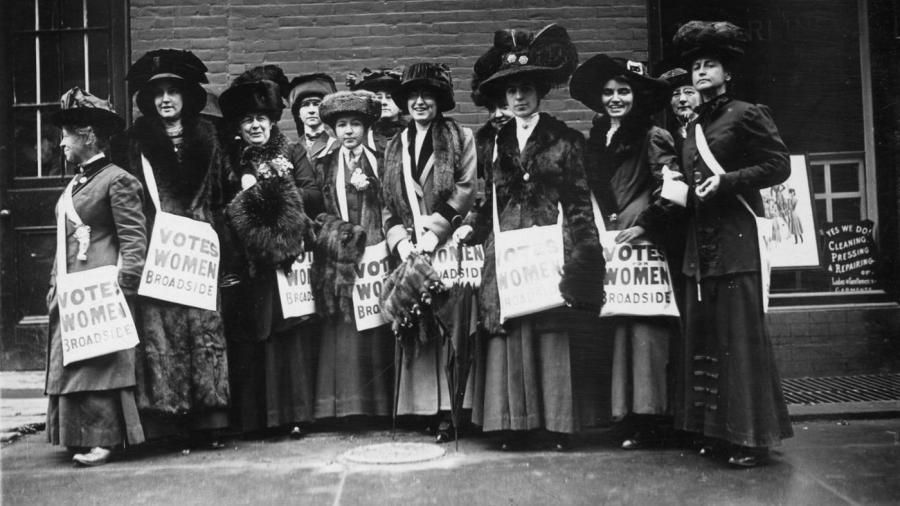Why Were Women Not Allowed to Vote?

There were multiple arguments against women’s suffrage. Common themes were that a woman’s delicate constitution made her unfit for the evils of politics, that she was too occupied with domestic duties to ponder political debate, and that she was too stupid or weak to bear the responsibilities of voting.
Men of the early twentieth century argued that governing in any capacity required a measure of force. Because of their smaller stature, women were considered the weaker sex and therefore incapable of being forceful enough for any leadership role. They were also considered too frail to directly compete with men as voting required. Opponents to suffrage feared an imbalance in social roles as well. A woman’s participation in the vote presupposed that men and women were equal. If this were true, men would lose their impulse to treat women in a chivalrous and compassionate manner. Another popular argument maintained that a woman did not need the vote because she already had too many responsibilities caring for her children, husband and household. According to this view, a proper and dutiful wife should devote all of her concern to these pursuits, which would leave her no time or energy to unravel the complexities of politics. Popular opinion held that a woman could trust her husband to take care of and speak for her in all things anyway, so there was no need for her to cast her own ballot.





